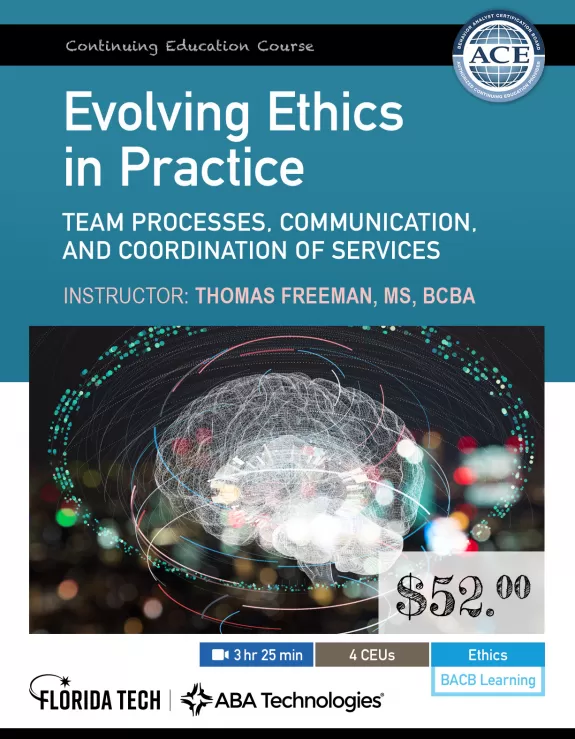Applying Ethics in Practice
Contact us for group and customized options
Abstract
In the context of every situation we encounter, both in our work as behavior analysts and in our
lives in general, we recognize that every ethical scenario is unique with individual circumstances
and variables. But while each situation is unique and must be assessed as such, there are
underlying processes that can be followed. This course provides a history of ethics as a
philosophy and in our field of behavior analysis, followed by an explanation of paradigms and
approaches to solving ethical dilemmas. After an introduction to a behavioral account of ethics
through the lens of radical behaviorism, students are given suggestions and guided practice for
approaching and analyzing ethical scenarios. Following rules, behaving ethically, and dealing
with complex ethical circumstances can be challenging and cause anxiety, but becomes easier
with practice. By continuously practicing these skills and contacting material related to
analyzing ethical situations, we can improve client outcomes, improve the reputation and
growth of the field, and sleep really well.
Learning Checklist
- Describe historical events related to professional ethics for behavior analysts
- Compare an analysis of actions to an analysis of consequences when evaluating ethical scenarios
- Identify potential issues that may arise when applying rule-based ethics, virtue ethics, consequential ethics, and contextual ethics
- Explain the relation between coercion, countercontrol, and ethics
- Describe the overlap between ethical, professional, and legal issues
- Identify examples and non-example of four factors that may govern clinical choice
- Describe major factors that led to BACB Professional and Ethical Code development
- Explain how to resolve ethical Code violations both formally and informally
- Identify the sequence of steps described in the Rosenberg and Schwartz (2019) model for evaluating ethical concerns




